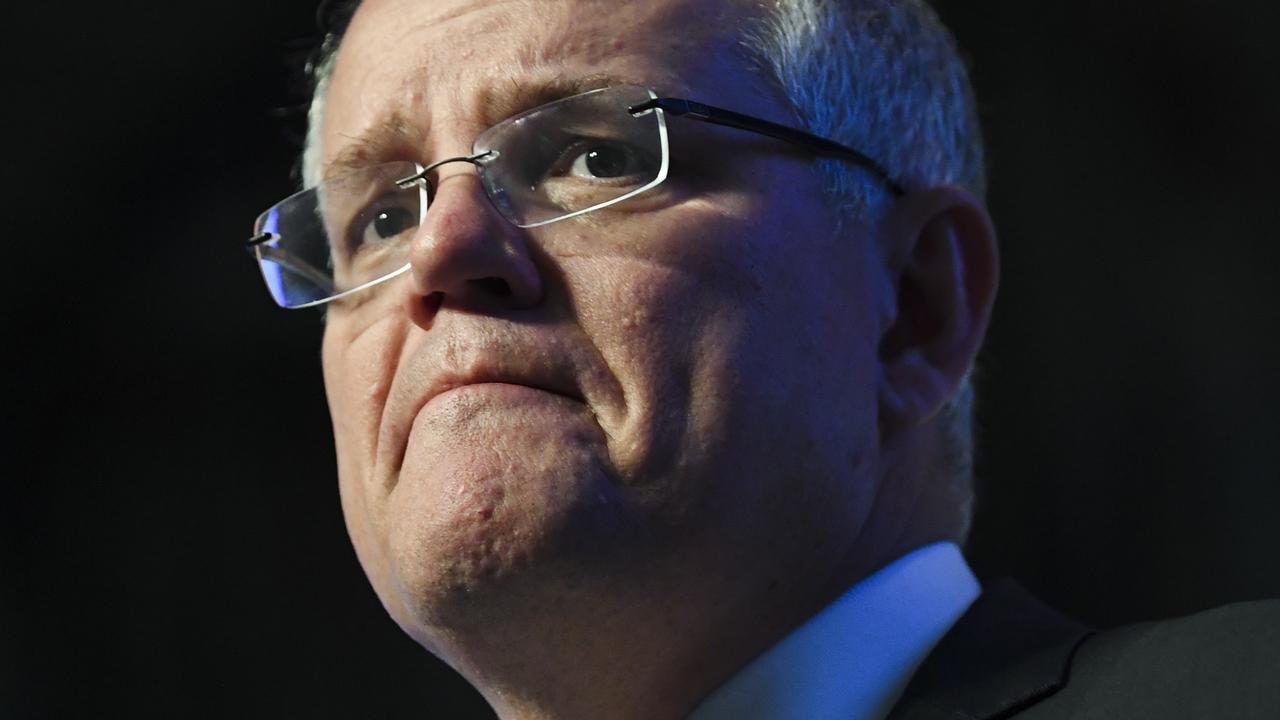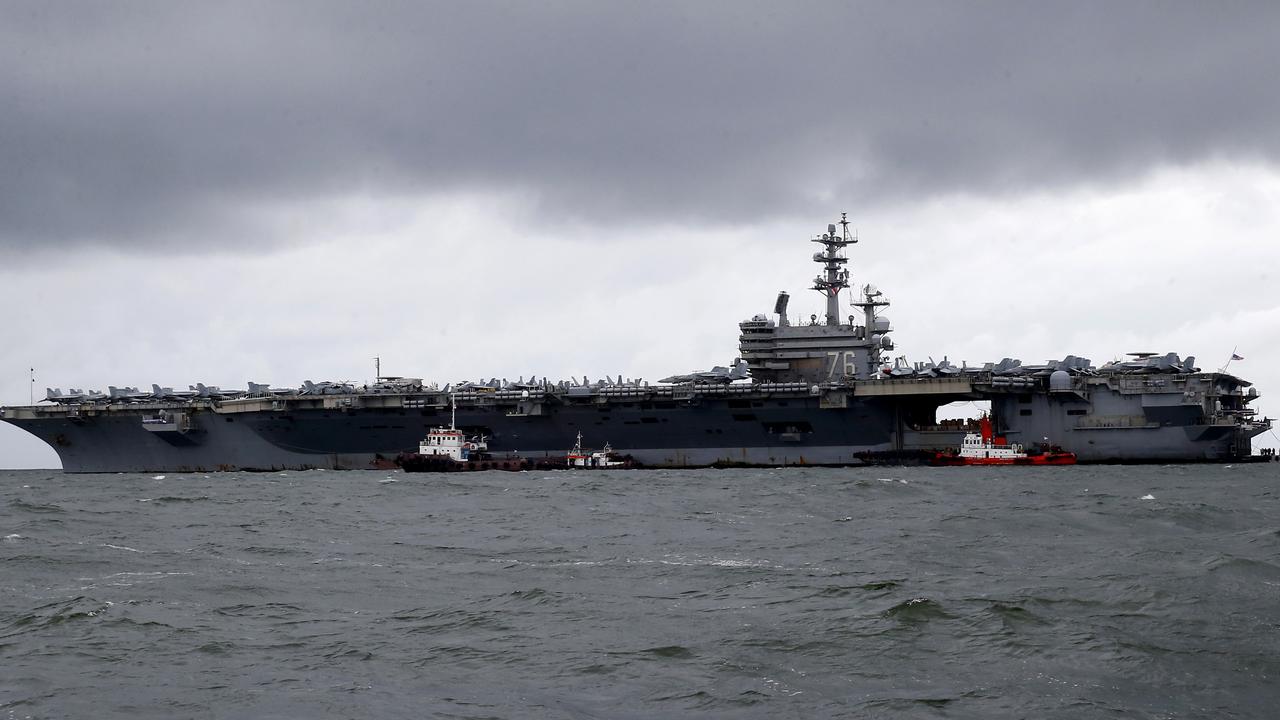South China Sea tensions loom over Scott Morrison’s crucial visit to Vietnam
China’s latest move in the fiercely disputed South China Sea is piling the pressure on Australia as Scott Morrison flies into Asia today.
Scott Morrison is travelling to Vietnam today for a crucial stopover on his way to the G7 Summit in France.
Mr Morrison is the first Australian prime minister to make a stand-alone trip to the country since 1994, and he has every reason to be there.
Vietnam is one of our fastest growing trade partners, second only to India. Two-way trade between Australia and Vietnam has grown by almost 11 per cent per annum over the last five years, reaching a whopping $14.5 billion in 2018.
That increasingly important economic relationship will be Mr Morrison’s main focus in Hanoi, where he will meet one-on-one with Prime Minister Nguyen Xuan Phuc tomorrow.
But for the second time in two weeks, Mr Morrison will be conducting his diplomacy in China’s steadily lengthening shadow.
RELATED: China and Vietnam face off in South China Sea

Vietnam is currently at the epicentre of perpetually simmering tensions in the South China Sea.
This week a Chinese geological survey vessel re-entered Vietnam’s economic exclusion zone in the southern part of the sea. It was escorted by two Chinese coastguard ships.
Vietnam responded by placing a military vessel in the area.
It was hardly the first Chinese incursion into the disputed waters. The survey ship first entered the zone last month, moving the United States to accuse China of interfering with Vietnam’s oil and gas exploration and to condemn its “bullying behaviour” and “intimidation”.
“(China’s) efforts to assert its unlawful South China Sea maritime claims, including the use of maritime militia to intimidate, coerce and threaten other nations, undermine the peace and security of the region,” the US State Department said.
“The United States firmly opposes coercion and intimidation by any claimant to assert its territorial or maritime claims.
“China should cease its bullying behaviour and refrain from engaging in this type of provocative and destabilising activity.”
Update (August 6): The Chinese survey ship Haiyang Dizhi 8 continues operations in Vietnam's exclusive economic zone. Graphic shows all activities since July 3rd. pic.twitter.com/0z1typMSsq
— Ryan Martinson (@rdmartinson88) August 6, 2019
#Vietnamese fishermen took this picture of the #Chinese survey ship Haiyang Dizhi 8 and one of its escort ships at #VanguardBank. The Chinese ships continue to operate in #Vietnam's jurisdictional waters. pic.twitter.com/6y1q7kdZxJ
— IndoPacific_SCS_Info (@IndoPac_Info) July 21, 2019
#SouthChinaSea maps showing the claims and facilities of each country. pic.twitter.com/a7c0NJ1O3C
— IndoPacific_SCS_Info (@IndoPac_Info) March 4, 2019
Back in 2014, China moved an oil rig into waters claimed by Vietnam, provoking weeks of angry protests across the country.
Now the situation is deteriorating again, and Mr Morrison is flying right into it.
“The ball is in China’s court and Morrison’s going to be in Hanoi in the centre of it,” said UNSW Canberra emeritus professor Carl Thayer.
“What happens if China provokes an incident as a way of warning off Australia and Vietnam simultaneously?”
Vietnam is not alone. Chinese survey ships are reportedly also intruding on Philippine waters, and for years China has claimed historic rights to territory held by Malaysia, Indonesia, Taiwan and Brunei.
The International Court of Arbitration has declared those claims invalid.
There will be pressure on Mr Morrison to publicly address China’s actions in the South China Sea during his visit.
“What Vietnam would expect the international community — and Australia being one of the key actors in this — is to speak up and to speak directly about the issues, like the United States did,” Huong Le Thu, a senior analyst at the Australian Strategic Policy Institute, told AAP.
Dr Le Thu said Mr Morrison’s presence in Vietnam would send “important” political and diplomatic signals to the region.
However, Prof Thayer said he did not expect Australia to be quite as blunt as the United States in its assessment of the situation.
He believed any official statement on the issue would talk about upholding international law — without explicitly naming China.
“I don’t think Vietnam will mind that restraint either because they’re very shy about being seen as part of a coalition permanently against China,” he said.

China’s influence was also a significant subtext at the Pacific Islands Forum last week, amid growing fears it could exploit the Pacific nations’ frustration with Australia over climate change policy.
During the summit, Beijing’s foreign ministry spokesman Geng Shuang accused Australia of “spreading the China threat fallacy” and being a “condescending master” to the Pacific.
He said the forum was “not the first time that leaders of Pacific island countries resented Australia’s behaviour”.
“Australia might as well reflect upon itself,” Mr Shuang said.
RELATED: Tuvalu PM vents on climate change
RELATED: Jacinda Ardern calls out Australia
Mr Morrison has been reluctant to call out China’s behaviour in such stark terms.
During the climate change argument last week, he pointed out that Australia would meet its commitments under the Paris agreement, but other nations would triple theirs.
That was an obvious, but implicit, reference to China.
Earlier this month, when government backbencher Andrew Hastie warned against underestimating China’s influence — and controversially compared it to Nazi Germany — Mr Morrison sidestepped the drama, referring reporters to a speech he had delivered on China before the G20 Summit.
In that foreign policy address, the Prime Minister warned of the “collateral damage” that could be caused by China’s increasingly strained relationship with the United States.
He also said as a rising global power, China “now has additional responsibilities”.
His moves to counteract China’s influence in Southeast Asia have been subtle, rather than confrontational. Mr Morrison has quietly focused on strengthening Australia’s ties to “free” countries in the region.
“It has been a top priority for me since becoming Prime Minister to be engaging with Indonesia, to be engaging with India, to be engaging with Japan, to be engaging with Korea,” he said at a press conference in Canberra yesterday.
“It has been to extend, strengthen, and further build the alliance relationships that exist across the Indo-Pacific of free, independent, sovereign nations simply seeking to be themselves in this part of the world. This brings stability to the region.”
Australia and Vietnam agreed to a strategic partnership in March of last year. Trade between the two nations is already covered by the ASEAN Free Trade Agreement and the Trans-Pacific Partnership.
Mr Morrison wants to build on that relationship in the coming days.
“The meetings will focus on strengthening economic security and people-to-people co-operation, and in particular broadening our trade and investment opportunities between our two countries,” the Prime Minister said.
But China’s intrusions risk becoming a significant distraction.
— with AAP




